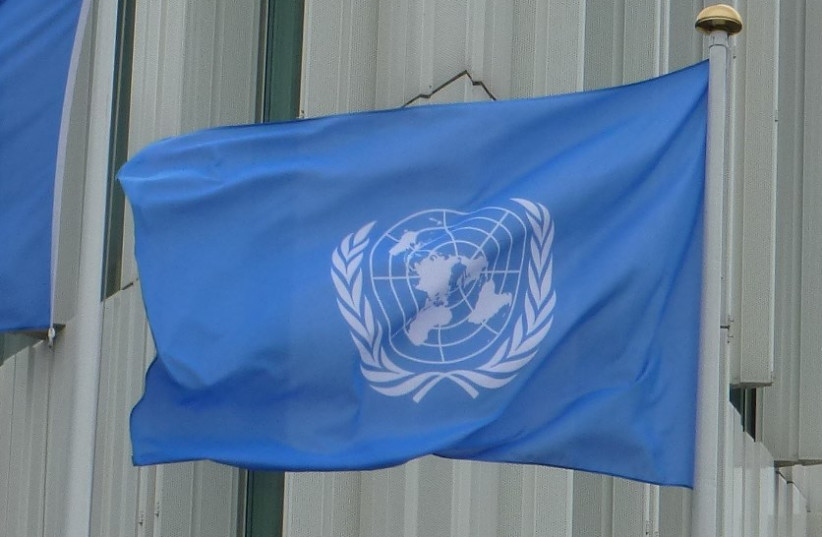The United Nations removed 15 companies from its controversial blacklist of businesses operating over the pre-1967 lines in West Bank settlements and in Jewish neighborhoods of east Jerusalem after they stopped their activities in those communities.
“There were 15 businesses that were removed from the list of 112” entities, said Ravina Shamdasani, a spokeswoman for the UN Office of the High Commissioner for Human Rights told reporters during a virtual press briefing out of Geneva on Friday.
In a further statement she issued to the press, Shamdasani said that the High Commissioner’s Office had removed the companies “on the basis that they were ceasing or were no longer involved in one or more of the listed activities in the OPT (Occupied Palestinian Territory.)”
Non-Israeli companies on the list
Two international companies — General Mills Inc. of the United States and Indorama Ventures P.C.L of Thailand — were removed from the list as were 13 Israeli entities.
Out of the remaining 97 companies on the list, only 15 are international and the remainder are Israeli. Among the 15 are companies from the US, the United Kingdom, France, Spain, the Netherlands and Luxembourg. Three of those companies are among the web giants when it comes to vacation travel, Airbnb, booking.com and Trip Advisor Inc.

The United Nations Human Rights Council had originally mandated the compilation of the list in 2016, with the stipulation that it be updated on a yearly basis.
The blacklist was published only in 2020 and lack of funding has since prevented the High Commission’s Office from updating it.
Shamdasani referenced that problem on Friday, noting that “while the resolution calls for annual updating, no regular resources were provided for that purpose, limiting our ability to undertake further work.”
She noted that a number of companies had proactively engaged with the High Commissioner’s Office to seek their removal from the database. A review process of the list was initiated in 2022, Shamdasani explained, and each of the entities on the list was invited to provide any additional relevant information.
“We received responses from 13 enterprises, and engaged in dialogue with some companies that requested it,” Shamdasani explained.
The Palestinian Authority envoy to the UNHRC Ibrahim Khraishi said he planned to submit a resolution during the 53rd session that is now being held in Geneva to ensure funding to update the list.
Israeli has opposed the publication of the list as another example of UN bias against the Jewish state, noting that no such list existed for any other country or conflict area in which the Human Rights Council alleged that human rights abuses were occurring.
Along with the US, it had unsuccessfully sought to prevent the list’s publication and has since worked to prevent the UNHRC from updating it.
Israeli’s mission to the UN in Geneva said on Friday that the list was a thinly veiled attempt to sanction Israel.
Israel’s Ambassador to the UN in Geneva Meirav Eilon Shahar called the list and its process of compilation “illegitimate,” charging that the UN had followed a “partial, selective, unreliable and flawed methodology.”
Law professor Eugene Kontorovich who is the director of the Kohelet Policy Forum said that his organization had “published numerous reports on major multinational firms doing significant projects in several occupied territories around the world, and the UNHRC has taken no steps to even consider blacklisting them.”
“The UNHRC continues to prove that it is not actually interested in blacklisting companies doing business in occupied territories, but rather targeting Jewish and Jewish-linked firms… This is naked anti-Semitism: they invented and are applying a punitive process solely for the Jewish State.”
He said he also had issues with the lack of transparency in the process of listing the corporations making it impossible to know what companies had been appropriately and not appropriately listed. It is therefore not possible to draw any conclusions from the fact that 15 companies are no longer listed.
In her statement on Friday, Shamdasani said that the High Commissioner’s office hoped that such a list could “become a tool that could be used in other country contexts.”
